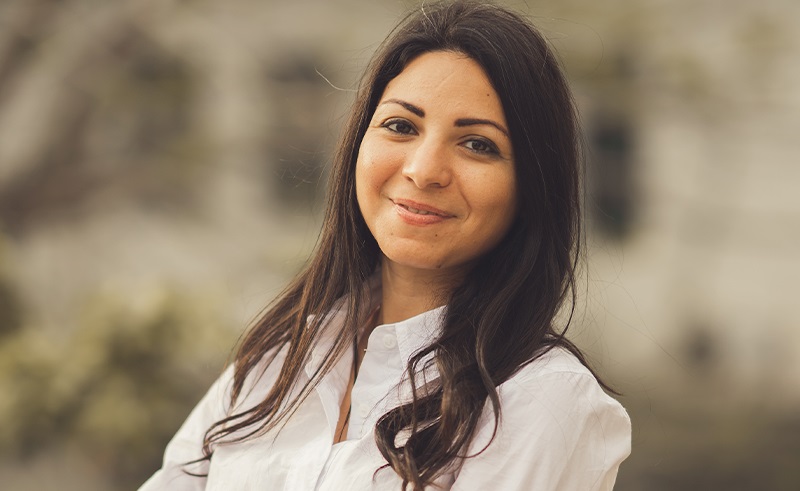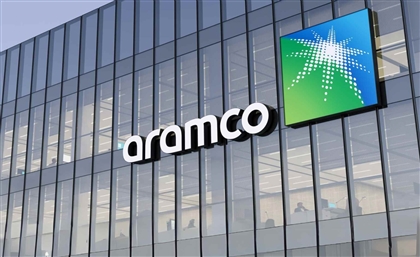How Online Marketplace Esorus Revolutionises Egypt's Design Industry
Breaking the mould by serving as an intermediary on multiple levels between designers and consumers, the platform connects people with some of the biggest names in the region’s interior design sphere.

Online marketplace Esorus has been digitising Egypt’s interior design industry since it was founded in 2019. Breaking the mould by serving as an intermediary on multiple levels between designers and consumers, the platform connects people with some of the biggest names in the region’s interior design ecosystem including Amr Helmy, Mona Hussein, and leading design studio Alchemy, alongside over 900 verified designers, 300 suppliers and six contractors.
An interior designer with over a decade’s worth of experience, founder Dalia Laz got her lightbulb moment after a short stint in Iraq with her husband. Working as a homestyler in one of the trendiest furniture stores in the country, Laz quickly came in contact with leading industry figures who were interested in Egyptian products - carpets, curtains and materials for home furnishings. It was through these interactions that she thought of creating an online marketplace specifically geared for the designer community in Egypt.
“I was returning to Egypt at the time and thought how can I provide high quality Egyptian products to designers,” Laz tells StartupScene. “I was told that I didn’t have to open a store. I could do it online and link between the suppliers and designers. This is how the idea started.”
Through Esorus, not only has Laz become one of the first female founders to create a one-of-a-kind marketplace, but she also became one of the first entrepreneurs to digitise Egypt’s design industry, making it more affordable and accessible to businesses and consumers alike.
BUILDING OUT
The idea of starting any business is daunting, but launching a technology-based startup without being well versed in tech is another matter entirely. However, Laz was determined to see her vision through. She enrolled in several accelerator programs, most notably the Founder Institute from Silicon Valley in 2018 and AUC Venture Lab in 2019, to speed up her learning. “This really gave me a good base for someone with no tech or business background, and made me very well equipped to be able to understand the terminology of the startup world,” Laz recalls.
With the necessary skills and education under belt, Laz was eager to bring her startup to life. Her idea was simple: to connect interior designers, architects, and contractors with suppliers to facilitate and streamline the work process. Digitization was new to the local industry at the time, but Laz forged ahead knowing that if done properly, the opportunity for growth would be significant since it’s based on real market needs.
“We didn’t have a typical model that we’re replicating,” she says. “Egypt is a whole different market. The mentality and consumers are different. So, we had to customise a model that would fit our market.”
To get Esorus off the ground, Laz decided to finance her platform by bootstrapping before attracting investors. It was only after validating her business model that she caught the attention of angel investors who provided Esorus with undisclosed funding in 2020 and 2021.
But it would take more than just funding to get Esorus up and running. A regular and consistent revenue stream is needed for any startup to operate successfully. That’s why Esorus adopted a subscription-based model, whereby suppliers and designers pay subscription fees to be part of the platform. “We take subscriptions from suppliers and designers, and give them benefits related to technology and consultation among other things,” explains Laz. “We also take a revenue stream from procurement, because we procure to the customers and big projects.”
With the interior design industry poised for growth, Esorus is in a good place to continue expanding its business. Furniture and home materials is a promising sector in Egypt. Revenues are expected to reach $962.40 million by the end of 2022, with an annual growth rate of 15.58% from 2022 to 2025, according to Statista.
GOING DIGITAL
Despite the startup’s initial success, Laz began experiencing challenges inherent in the local design industry soon after launching. “The industry is lagging behind,” explains Laz. “People tend to not be very tech savvy. The supply chain is also not good, and many don’t have SQ, that is to say, the barcode that shows product details such as size, colour, price, manufacturer, brand and so on.”
She decided to play a role in educating the industry on the importance of going digital. “It was challenging to educate them to have the proper data for the website that we need to build-up our company, and to link between designers, projects and suppliers,” she says. “I started with a manual process to feed data into the website.”
In spite of the economic difficulties brought upon by lockdown, the COVID-19 pandemic helped accelerate this process. “Educating the market and raising awareness about the industry, whether suppliers or designers, became apparent during the pandemic,” Laz says. “They realised the need to be online and this helped us a lot.”
BLUEPRINTS FOR EXPANSION
Esorus is now extending its services offline to its showroom in Maadi. While the online platform enables users to liaise directly with interior designers and browse through a variety of products, Laz knows that when buying high end, premium quality products, people prefer to do it in person.
“You cannot buy expensive things for your home online. It’s very difficult,” she says. “At the same time, the other options that have been made available include going to big exhibitions or visiting each store and supplier individually to select what you want. It wastes a lot of time.” In Esorus’ Maadi showroom, which is set up like a gallery, Laz explains that visitors will get to experience first-hand the characteristics and features of a product, and how it can be integrated in the home with the help of on-site designers. She utilises VR in the showroom to enable visitors to browse the full range of products offered by some of her supplier companies.
Nevertheless, her biggest challenge is dismantling the belief that interior design is costly. “People can actually use the services of a designer without it being expensive,” says Laz. “In fact, you can actually save money by hiring a professional based on a budget. She adds that through their awareness campaigns, both online and offline, Esorus was successfully able to drive this message home. She hopes by further growing the platform, this preconception can be eradicated.
For now, though, Laz is eager to launch her startup’s B2C business in 2022 Q3, which will be based in the Maadi villa. Given the success of its B2B arm in such a short amount of time, Laz is optimistic about the future. “We already received organic requests, whether for designers or for those who want to furnish their homes,” she says. “Once we fully operate our B2C, we look forward to taking on large scale projects.”




















